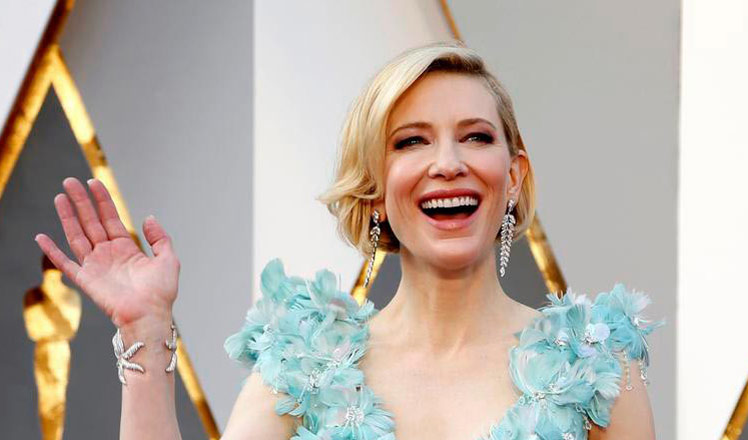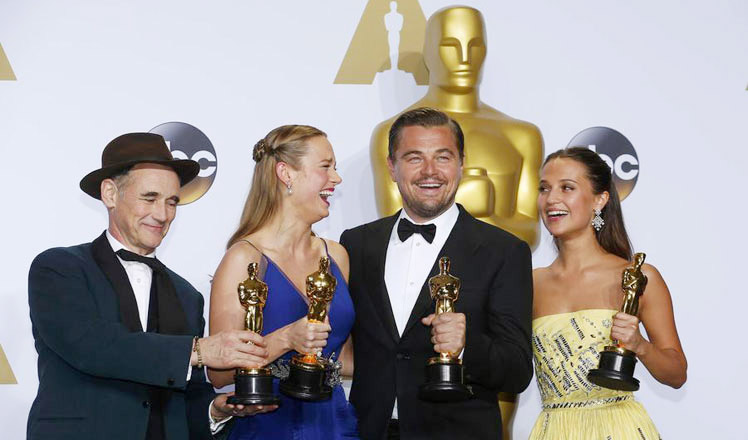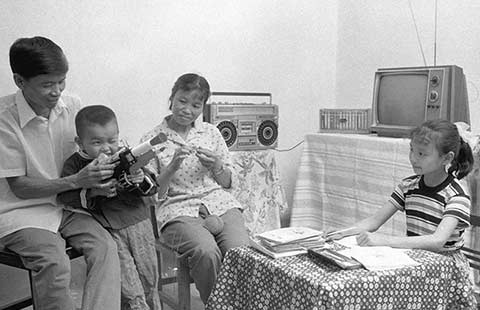Strong female characters in film and TV inspire women in life: Study
Updated: 2016-03-01 11:25
By Chen Yingqun(chinadaily.com.cn)
|
|||||||||
The Geena Davis Institute on Gender in Media and J. Walter Thompson Company released a research report saying that female role models in film and TV are hugely influential in driving women to improve their lives.
The report, which was released on the same day Oscars were awarded in Hollywood, finds that 90 percent of women globally feel that female role models in film and TV are important, 61 percent said female role models in film and TV have been influential in their lives, and 58 percent said that women have been inspired to be more ambitious or assertive.
The survey of 4,300 women in nine countries – Brazil, China, India, Saudi Arabia, South Africa, Russia, Australia, the United Kingdom and the United States – also showed that one in nine globally, rising as high as one in four in Brazil, said that positive female role models had given them the courage to leave an abusive relationship.
However, 53 percent of women globally think there is a lack of female role models in film and TV; 74 percent said they wished they had seen more female role models growing up; and 80 percent said that women should have a louder voice when it comes to cultural influence.
Previous research by the Institute found that the percentage of fictional working women is even lower than the one that exists in the real world. Of the characters with jobs, less than 25 percent were female, while women make up 40 percent of the global workforce. Film depictions also fail to reflect the slow but steady progress of female representation across professions. Despite women holding 24 percent of global political positions, out of 127 characters holding political office in films, only 12 were female.
Geena Davis, Founder & Chair, Geena Davis Institute on Gender in Media, said: "The fact is, women are seriously under-represented across nearly all sectors of society around the globe, not just on screen, but for the most part, we're simply not aware of the extent. And media images exert a powerful influence in creating and perpetuating our unconscious biases."
Rachel Pashley, Global Board Planning Director at J. Walter Thompson, said that the lack of female role models on film and TV has been trivialized for too long – the statistics around abusive relationships in particular bring the importance of the issue into stark contrast.
"Saying anything is possible isn't as powerful as seeing that anything is possible. It's about setting a precedent; if girls don't see women physicists, racing car drivers and CEOs on screen, how are they expected to want to be physicists, racing car drivers and CEOs?" she said.
The full research report will be available through the Geena Davis Institute in March.
- Cuba intensifies fight to fend off Zika virus
- UN chief calls for 'prompt, impartial' probe into airstrike on Yemeni market
- Ex-Tepco execs indicted over Fukushima disaster
- British PM threatened with 'no confidence vote' over EU referendum
- 70,000 may become trapped in Greece
- Venezuela, Qatar, Saudi Arabia, Russia to meet to stabilize oil market

 Stars arrive at 88th Academy Awards in Hollywood
Stars arrive at 88th Academy Awards in Hollywood
 China has world's largest high-speed rail network
China has world's largest high-speed rail network
 Top moments from Oscars 2016
Top moments from Oscars 2016
 China Daily weekly photos: Feb 20-26
China Daily weekly photos: Feb 20-26
 People view plum blossoms at scenic area in E China
People view plum blossoms at scenic area in E China
 Rural e-commerce developed to promote local products in SW China
Rural e-commerce developed to promote local products in SW China
 Things you should know about the 2016 G20 meeting
Things you should know about the 2016 G20 meeting
 Walk down memory lane: Rural China in 1980s
Walk down memory lane: Rural China in 1980s
Most Viewed
Editor's Picks

|

|

|

|

|

|
Today's Top News
What ends Jeb Bush's White House hopes
Investigation for Nicolas's campaign
Will US-ASEAN meeting be good for region?
Accentuate the positive in Sino-US relations
Dangerous games on peninsula will have no winner
National Art Museum showing 400 puppets in new exhibition
Finest Chinese porcelains expected to fetch over $28 million
Monkey portraits by Chinese ink painting masters
US Weekly

|

|








